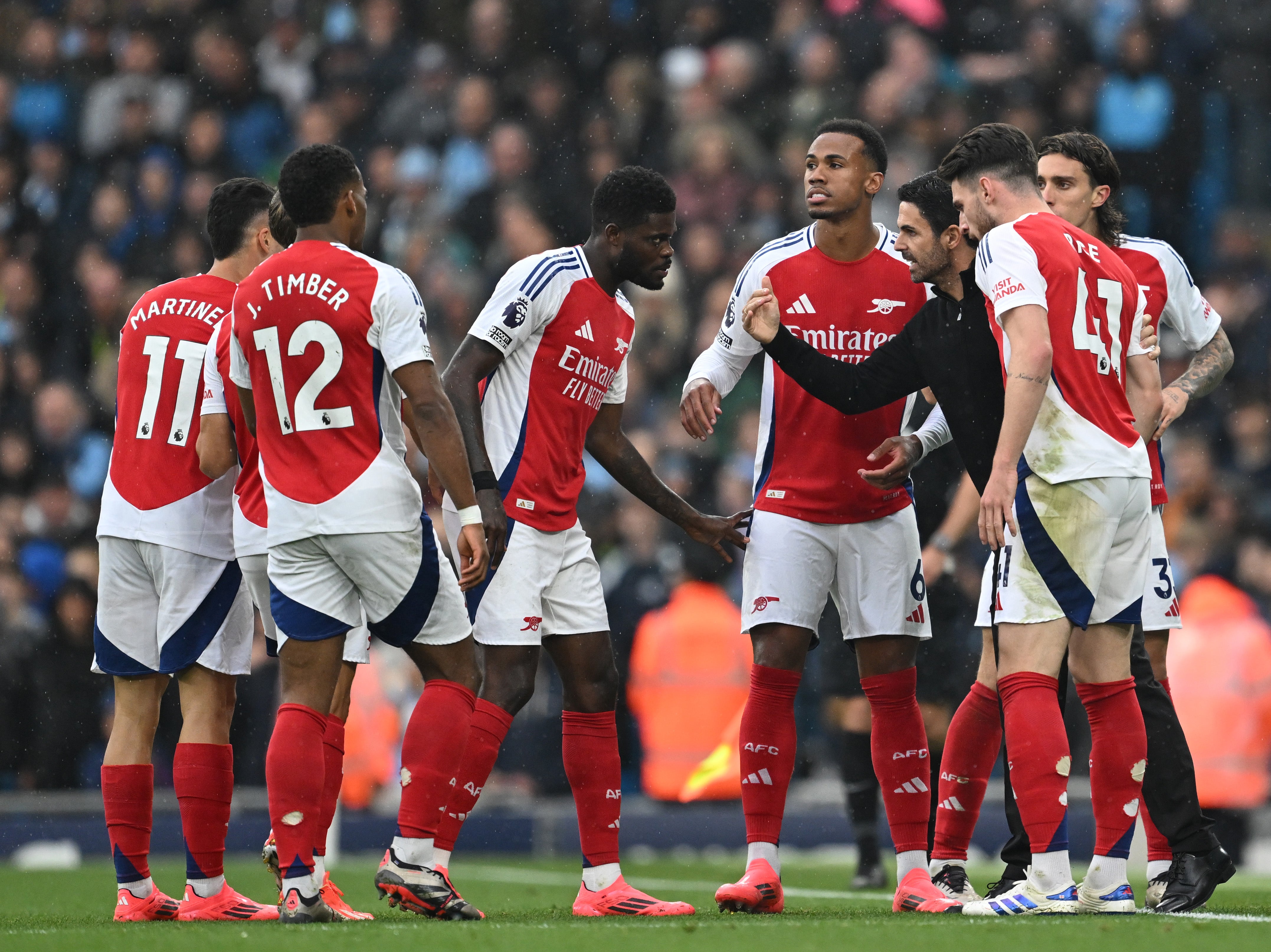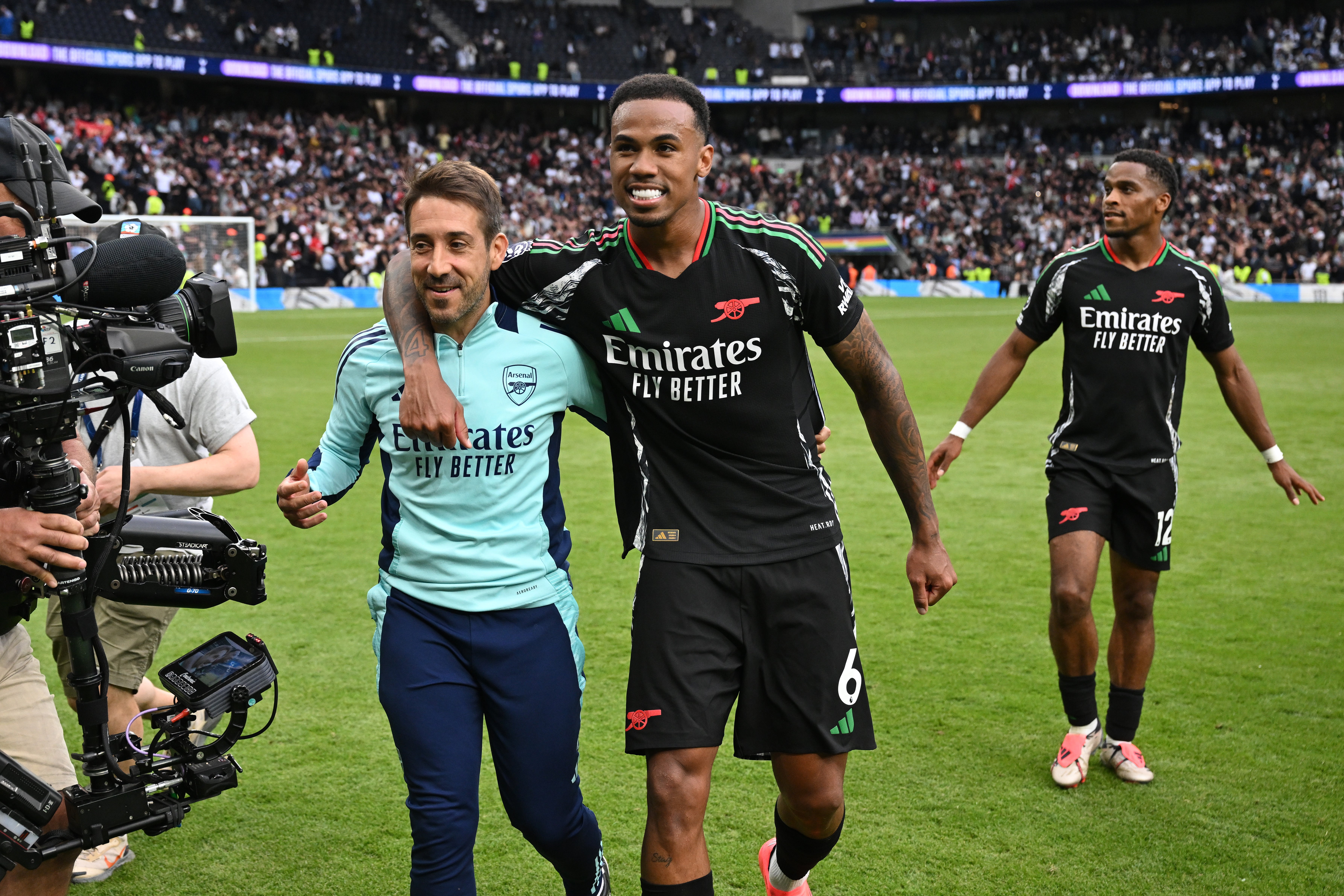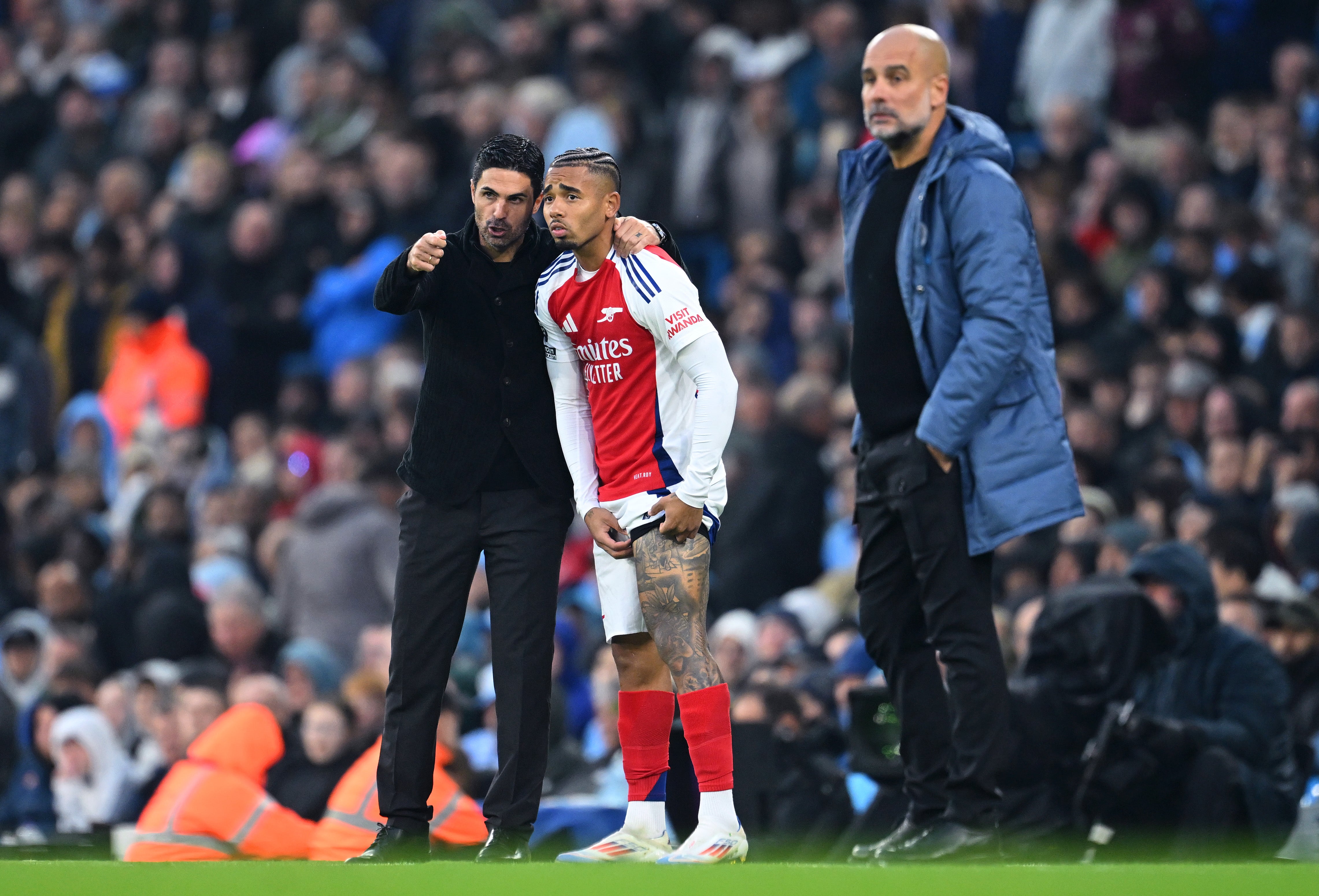When Arsenal set up for a corner against Leicester City on Saturday, there will be a ripple of anticipation. That isn’t just because of Gabriel’s goals in the last two Premier League games. It’s also what led to them.
Arsenal have become one of the teams that take longest over set-pieces, although that isn’t down to time-wasting. At least not most of the time. Bukayo Saka will make sure to time his breathing, to get his own positioning right, and then put his hand up. It is like a rugby kicker, except all of these motions are also triggers for teammates as well. Saka won’t take the corner until every Arsenal player is in the mandated position, which can have the double effect of drawing the opposition out of position. This is what brings the ripple. The idea, as it was explained to some in the dressing room, is to think of it “like a negotiation or an interview”. If you say nothing, there’s a gap, and they are likely to make a mistake trying to fill it.
If this sounds a bit far-reaching, it is only a reflection of how deeply Arsenal think about all of this now. It has really become about fighting for every centimetre of opportunity, in the belief that this can maximise results.

This week’s opposition show the great virtue of that. It’s not something Arteta would speak publicly on, but he can remember the frustration of Arsenal’s 2015-16 season, his last as a player. That was really their best opportunity to win the title since 2004, given the drop-off among major rivals. They were instead easily outstripped by a Leicester team who were cannier and harder. Arteta is understood to have felt there was a contrasting softness to Arsenal, and the discourse of the last week had an ironic edge given how Arsene Wenger’s sides were mocked for “naivety”. Those at rival clubs spoke of a self-defeating purism. With Arteta already planning his move into coaching at that point, he vowed it would not be a criticism made of his own teams.
That has directly led to this controversy of Arsenal being accused of the “dark arts”. Fighting for every centimetre has forced their opposition to fight for everything, almost literally. Others, including some rivals, would put it differently. They’d describe it as extreme pragmatism, which is in-keeping with how Arsenal are now being talked of as one of the best-prepared clubs in Europe.
Arteta and his staff pore over every element of a match to consider how it can be improved upon. You can almost see the layers, which is itself in-keeping with how Arteta’s adherence to the positional game sees the pitch split up into different zones. Arsenal use that blueprint to impose the core of the team, which is the manager’s tactical ideology. On top of that are the players, and how they interpret the broad approach. There are then the fine details, and final percentage points.
The approach to set-pieces comes from coach Nicolas Jover, who has earned public admiration from Arsenal’s high number of goals from such situations. Arteta had worked with the French set-piece specialist at Manchester City and headhunted him on becoming Arsenal manager. It was the first step in wider preparation for these final details. Arteta had looked at the statistics and decided it was essential this was one of his first appointments. That did eventually lead to some animosity between the benches in Sunday’s 2-2 draw, since City also realised Jover’s value. They tried to block the move, and didn’t like that he’d jumped ship.
The appointment was a symbol of how Arsenal would ensure staff are specialised on specific controllable moments. Another illustration was David Raya taking the opportunity of a VAR check to run over to goalkeeping coach Inaki Cana for advice before Atalanta’s penalty in last week’s Champions League match. The goalkeeper saved Mateo Retegui’s kick before immediately stopping the rebound. Even the latter was viewed in the context of this preparation, as Raya’s spin around from a lying position was classic muscle memory from training-ground drills: stop and respond.

The goalkeeper’s recent heroics have so far greatly vindicated Arteta’s decision to replace Aaron Ramsdale, although the original reasoning was more specific. Cana suggested Raya after working with him at Brentford because he knew the Spanish international could play a very particular type of pass to beat the press. That is added to his ability to play like a third centre-half when Arsenal build up from the back.
The very descriptions here will sound familiar, and it should be stressed none of this is necessarily new. Arteta was influenced by Guardiola’s attention to detail, and even that was preceded by managers of financially weaker teams who knew to “control the controllables”: set-pieces and team shape. What represents an evolution, however, is how one of the world’s wealthier clubs have taken this to extremes. It does herald the long-awaited scientific sophistication of football, right down to how Arsenal have become one of several clubs to use artificial intelligence to mine data. Arteta is so fixated on pushing this to extremes, though, because he knows of the need to make up any possible gap to City’s higher wage bill.
More is expected. In the same way Arsenal’s coaches now specialise in individual game elements, Arteta has considered eventually having staff who solely focus on possession, high press or low block respectively.
It is why some talk of football coaching becoming more stratified, like rugby union or American football. Along those lines, Arsenal have been almost dogmatic on signing players with elite game intelligence. It is as important as ability. Like Guardiola, Arteta’s game models are so complex, especially in terms of positioning in relation to various pressing drills, that they can take a lot to internalise. One high-profile player initially struggled. Jurrien Timber is said to be “PhD-level” at it, followed by summer signing Riccardo Calafiori.

Arteta has consulted several psychologists as part of this, which has led to some of the more lampooned parts of his management. There was the infamous lightbulb stunt in the All or Nothing documentary, and then the gleefully shared accounts of how Arteta deployed a professional pickpocket at a team dinner to teach his team to be alert.
It was Arteta himself who wanted an anthem like “The Angel (North London Forever)” in order to create long-term cultural touchstones that amplify identity. One opposition player scoffed after one of the song’s first airings, describing it as “lame”. It’s fair to say it hasn’t caught up to “You’ll Never Walk Alone” as regards to wider appreciation.
Arteta believes that will come in time, along with the effects of all his detailed designs. He is said to remain proud of the pickpocket stunt, of which the central message was “always pay attention to details”. That has become his own guiding philosophy. The anticipation is that no one will laugh once it yields results like trophies.
That can of course lead to even greater lampooning if you lose and it backfires. Such has been the focus on set-pieces and “dark arts” that Leicester are going to be one of many clubs now watching how Arsenal surround their goalkeeper. Jover will be required to come up with something else.
Arteta knows none of this can overcome one fundamental football reality: the quality of the players, and consequently the wage bill, is the most important aspect of football. Everything flows from that. Such details are only about amplifying that quality. Arteta suffered from Leicester’s success with it first hand.

